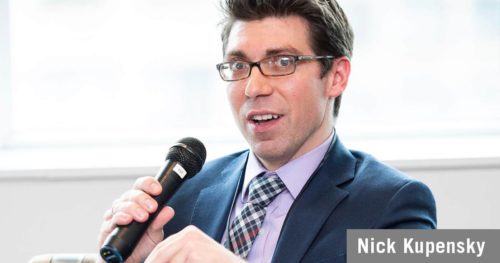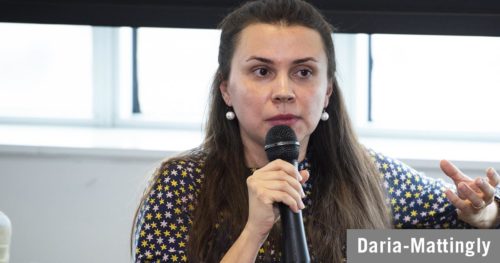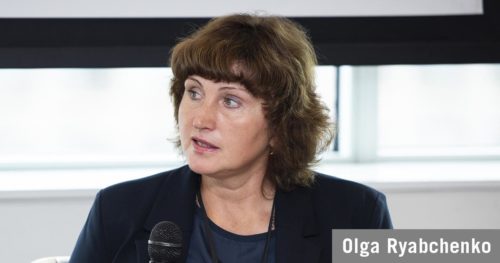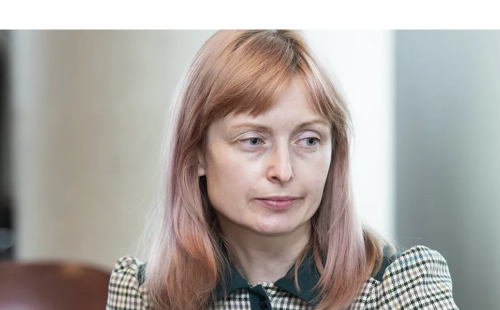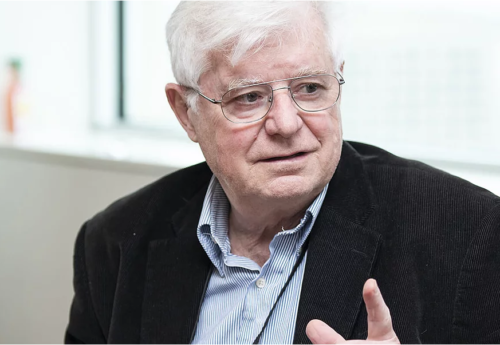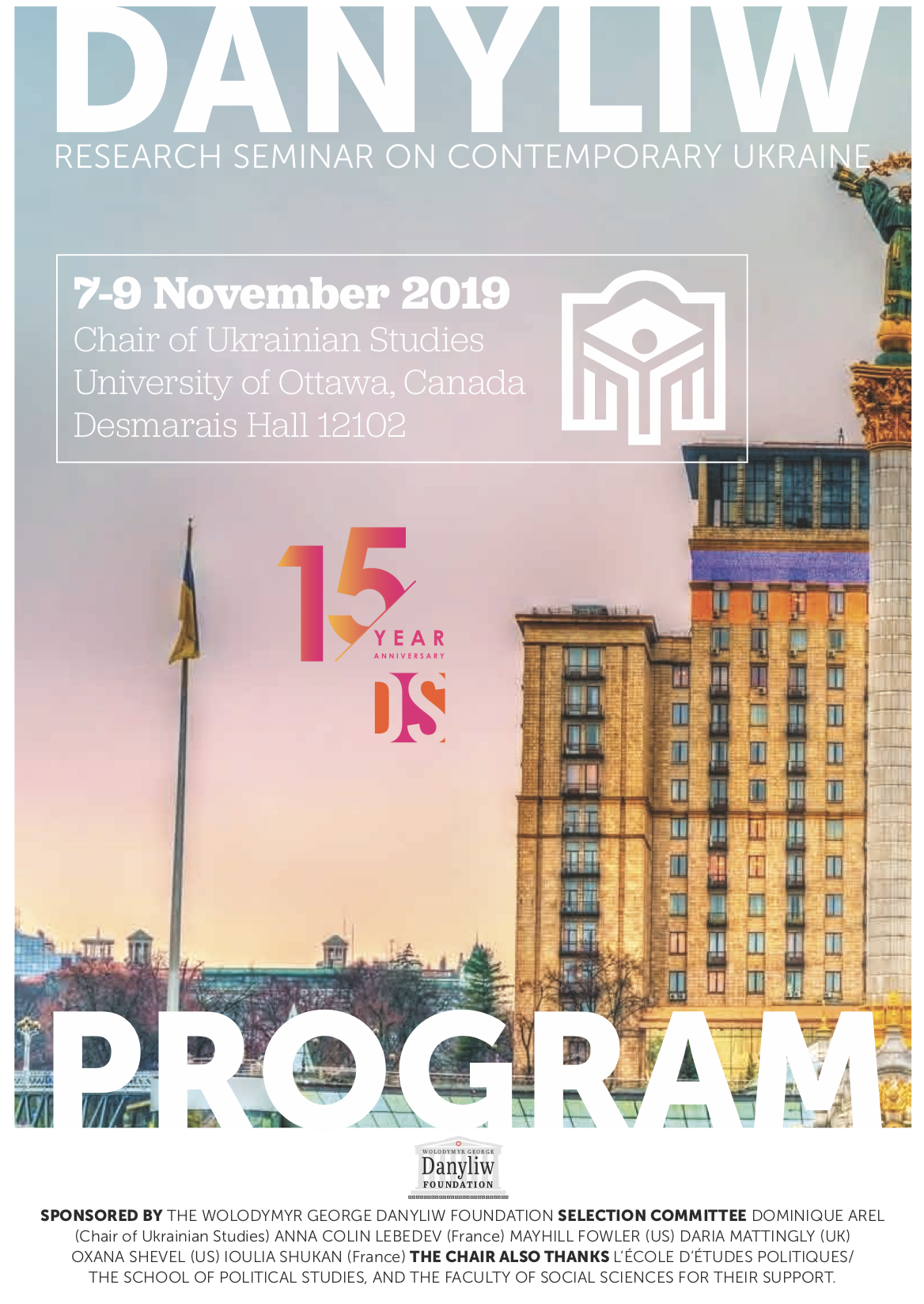“The Holodomor: 85 Years Later” Danyliw Research Seminar on Contemporary Ukraine
HREC sponsored panels at the Danyliw Research Seminar on Contemporary Ukraine at the University of Ottawa in recognition of the 85th anniversary of the Holodomor. The seminar is an annual forum and an important venue in Ukrainian studies, bringing together international researchers working in the social sciences and humanities related to Ukraine. Presenters included Oleh Wolowyna (University of North Carolina, Chapel Hill), Nataliia Levchuk (National Academy of Sciences, Ukraine), Olya Ryabchenko (Beketov National University of Urban Economy, Ukraine), Daria Mattingly (University of Cambridge), and Nicholas Kupensky (Bowdoin College), and Stanislav Kulchytsky (Institute of Ukrainian History, Ukraine).
In his presentation “Blindness, Hypnosis, Addiction, Fetish: The Language of Denial in Soviet Industrial Travel Narratives,” Kupensky investigated how foreign journalists to the USSR in the early 1930s used the language of denial, and explored efforts to negotiate the ambivalent legacy of Soviet industrialization with the memory of the victims of Holodomor. In her presentation “The Ordinary and Extraordinary Perpetrators of the Holodomor,” Mattingly discussed the men and women whose actions led to the deaths of others. Her close reading of their memoirs and archival documents indicates that most participated for banal reasons, similar to those of perpetrators of other genocides.
Ryabchenko’s presentation,“Resistance Representative and Humility: Mobilizing Young People for Work in Rural Areas during the Years of Collectivization and the Holodomor,” analysed the participation of students and teachers of Ukrainian higher education institutions in Soviet transformations in rural areas.
In her paper “The Role of Grain Procurement in Understanding Regional Variations of 1933 Holodomor Losses,” Levchuk conducted a comparative analysis of losses and grain procurement distributions at the regional and local levels, examining the extent to which regional differences in mortality can be explained by grain procurements.
Oleh Wolowyna delivered a presentation titled “A General Framework for Holodomor Research,” in which he proposed the formulation of a framework, based on quantitative and comparative research, to help clarify key concepts related to research on the Holodomor, synthesize current research results, detect gaps and problems with current knowledge of the famine, and provide guidelines for future research.
In addition, Stanislav Kulchytsky presented his new book The Famine of 1932–1933 in Ukraine: Anatomy of the Holodomor, during another session of the conference.
Additional information on the conference is available online at: https://www.danyliwseminar.com/
Presenters
-

Nick Kupensky
Bowdoin College (US)
-

Daria Mattingly
University of Cambridge (UK)
-

Olga Ryabchenko
O.M. Beketov National University of Urban Economy (Ukraine)
-

Nataliia Levchuk
National Academy of Sciences (Ukraine)
-

Oleh Wolowyna
University of North Carolina at Chapel Hill (US)
Program
Videos
-
Nick Kupensky, Bowdoin College (US)
-
Daria Mattingly, University of Cambridge (UK)
-
Olga Ryabchenko, O.M. Beketov National University of Urban Economy (Ukraine)
-
Nataliia Levchuk, National Academy of Sciences (Ukraine)
-
Oleh Wolowyna, University of North Carolina at Chapel Hill (US)
Sponsors
The Wolodymyr George Danyliw Foundation
Holodomor Research and Education Consortium (Canadian Institute of Ukrainian Studies, University of Alberta)
